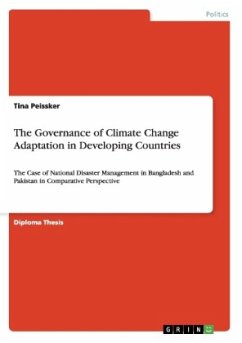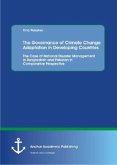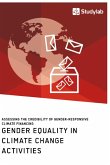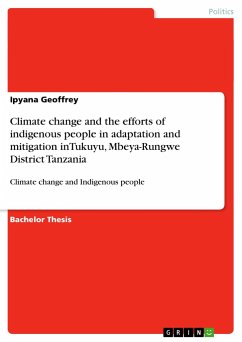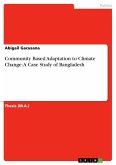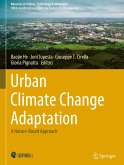Diploma Thesis from the year 2011 in the subject Politics - International Politics - Environmental Policy, grade: 1,3, University of Potsdam (Chair of International Poilitics), language: English, abstract: The prospects that global climate change will have adverse effects on human societies opened up a discourse about how adaptation should be managed. In order to finance adap-tation measures, the parties of the Kyoto Protocol recently established the Adaptation Fund in 2007. In view of the limited resources that are available for adaptation, scales for the prioritization of countries according to their suspected vulnerability have been developed in the literature. Indicators of vulnerability highlighted within this literature, only reflect the indicators of human development and therefore fail to capture the complex structures of vulnerability. The collective learning approach assumes that vulnerability can be significantly decreased when governance systems adapt to external changes through collective learning processes. The present thesis connects to this notion and therefore assesses the influence of collective learning processes on the vulnerability of the Bangladeshi and Pakistani society towards flood hazards. It does so in order to find a determinant of vulnerability that is able to capture its complexity. Following a case study comparison that is based on a systematic research on primary and secondary literature this study reconfirms that vulnerability can substantially be decreased in the presence of collective learning processes.
Hinweis: Dieser Artikel kann nur an eine deutsche Lieferadresse ausgeliefert werden.
Hinweis: Dieser Artikel kann nur an eine deutsche Lieferadresse ausgeliefert werden.

